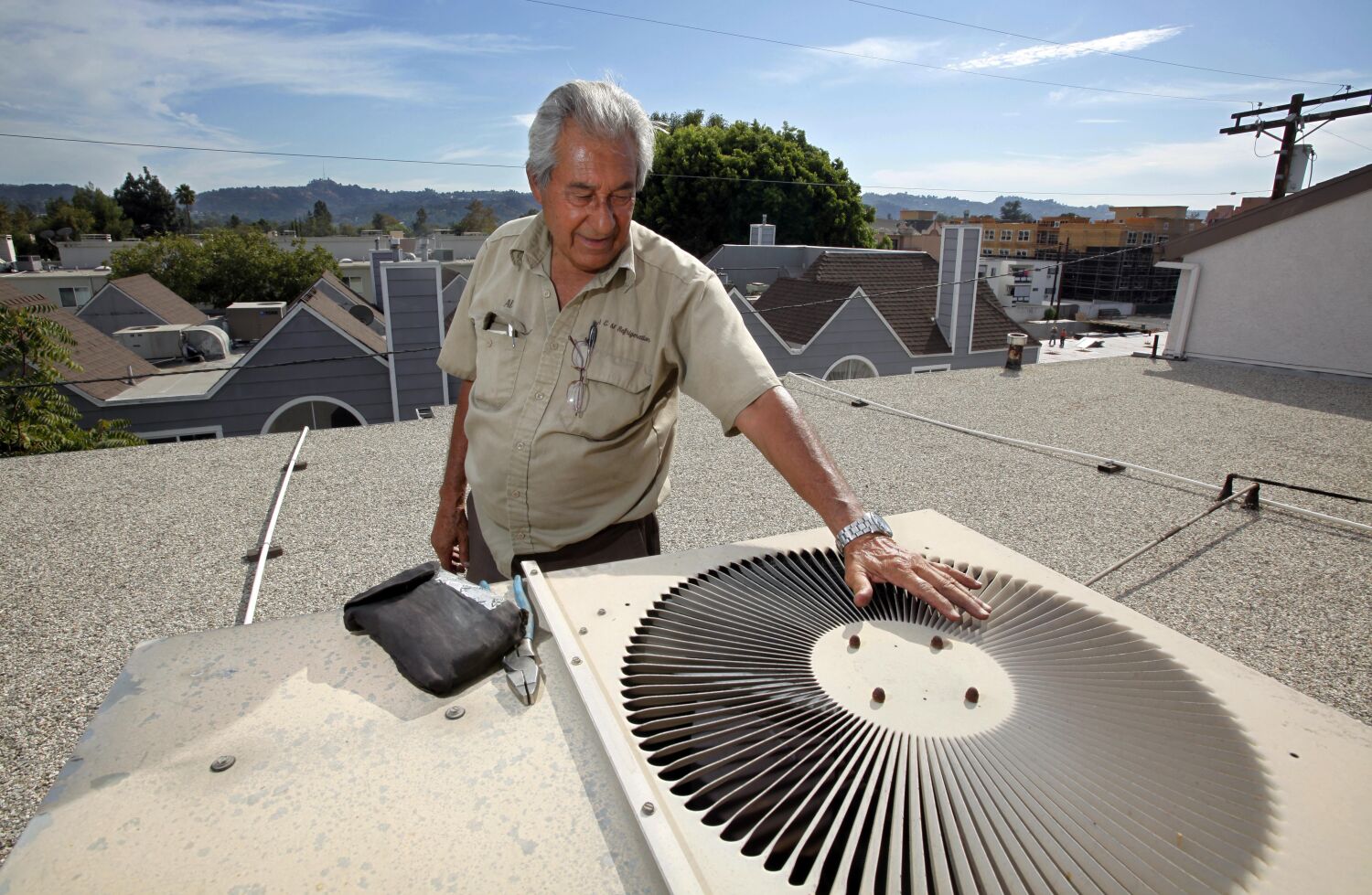Global Courant
Heading into the height of summer, Los Angeles officials want to know what it will take to require every rental property in the city to have an air conditioner or central air conditioner.
Just last year, Southern California was gripped by a 10-day heat wave that swept through the region and broke temperature records. By the time it subsided, Los Angeles County emergency services had responded to 146 calls classified as “heat” — defined by the agency as environmental hyperthermia.
Now city officials are studying the cost and feasibility of cooling all rental properties across the city.
“At this juncture in the climate emergency, the ability to cool someone’s home cannot be viewed as a luxury and rather should be treated as a necessity,” said Los Angeles City Councilmember Eunisses Hernandez in her motion proposing the feasibility study, which cost item would include. estimate for updating the city’s building code.
“Requiring refrigeration equipment for all housing units could be a life-saver for countless Angelenos during extreme heat events.”
The council approved the motion on Wednesday and is expected to return for public input.
A 2021 Times study found that 3,900 deaths occurred in California from extreme heat between 2010 and 2019. But access to life-saving cooling appliances and the ability to cover the cost of electricity during a heat wave are often out of reach for low-income and senior citizens on fixed incomes.
As part of the proposed study, the board asked staff to determine which buildings lack submeters, devices that allow utilities to track power consumption per unit, and also the cost difference between installing wall-mounted AC units or a central air system for an entire building.
Currently, air conditioners or central air conditioning are not required for a rental unit to be habitable in California, according to the state’s building code standard.
California laid the groundwork for an extreme heat action plan last year, allocating $800 million to address the problem, but also saw a proposal to appoint a chief heat officer fail in the state assembly. A statewide extreme heat warning and rating system is expected to be launched in 2025, providing general information to the public much like other states respond to hurricanes.
But for advocates on the ground — like housing policy coordinator Jovana Morales of the Leadership Counsel for Justice and Accountability, a Central Valley-based advocacy group — it feels like the emphasis on tackling climate change and amplifying heat waves is often ignored until summer arrives. . around and reminds everyone of the danger.
“I just don’t feel there’s any urgency in the legislature,” Morales said. “You know… we’ve been working on this and people have been advocating for solutions, especially… at home, but it’s just not moving fast enough.”
Morales’ group supported last year Assembly Act 2597, which sought to update the state’s building code to establish a safe maximum indoor temperature in new and existing housing units. Units found without refrigeration options would be considered substandard under the bill, which did not become law.
The proposed code update was designed to address workers living in substandard housing conditions, where temperatures often get so high that it’s unsafe to live in units, Morales said.
But the Leadership Counsel didn’t just focus on air conditioners. It pushed for improved insulation, more shade through landscaping, heat pumps, and roofs designed to reflect sunlight. AC units were not an emphasis as they generate greenhouse gas emissions.
“A lot of the older buildings just don’t have that cooling mechanism, and so our bill should have set a maximum indoor air temperature,” Morales said.
Older buildings are often the only units that low-income families can afford, Morales said, and they would benefit most from updates to the existing housing code to require cooling standards.
City leaders directed staff to study an update to the housing code and also explore possible programs to help low- and middle-income families pay for the installation and operation of an AC unit.
Fred Sutton, senior vice president of local public affairs at the California Apartment Assn., said renters are made aware of available amenities when they sign a lease. Those tenants can and should approach their landlords if they want a cooling device installed in their units, he said.
But requiring all rental units to have a refrigeration appliance would drive costs down on landlords and tenants, Sutton said.
“I’ve heard a lot from the city about grants to tenants facing additional energy costs,” Sutton said. “But what cost would that work mean for the building and the (landlords)?”
The Los Angeles Department of Water and Power offers a variety of options for low-income residents through the Cool LA program it launched last summer. These include grants to help pay electricity bills during a heat wave, rebates to offset costs and other resources designed to help residents weather the heat.
The requested report is expected to be submitted to the Housing and Homelessness Committee of the City Council in the coming weeks.








